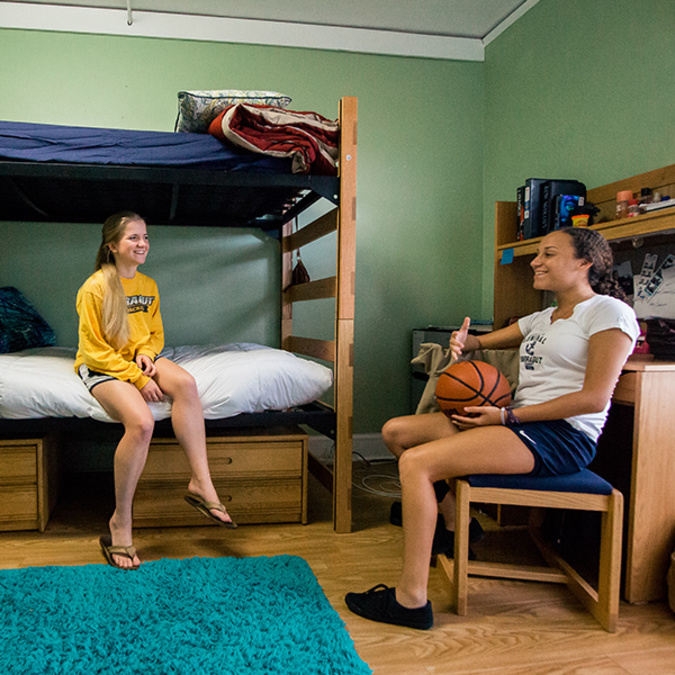The image of boarding schools as a place for only privileged children or troubled teens does not hold true.
Families consider boarding schools for a variety of reasons — specialty programs, concerns about local schools, work that doesn’t allow parents to be home or would put their children in unsafe situations, and so on.
“Research proves that contemporary boarding schools serve a diverse body of motivated students who study and live in supportive, inclusive academic communities where they learn about independence and responsibility – values that help them achieve success at higher rates than private day and public school students – in the classroom and beyond,” according to The Association of Boarding Schools.
There are about 300 boarding schools in the United States, and more abroad, most for both genders and some just for boys or just for girls. When researching boarding school, you most likely look at academic advantages. Take the time to also consider three personal factors to see if boarding school is the right choice for your child:
Independence
Children will be away from their parents, and that leads to a degree of independence. While there is supervision at boarding schools, they are a precursor to college, when students usually live a short or long distance from family.
It may not be easy for children to separate from parents, so moving a few years before college could help students learn how to cope while “under the watchful eye of your teachers who are mentors, not babysitters,” said Robert Kennedy, a management consultant for private schools.
“Taking a lot of little steps towards maturity is one of the intangibles of going to boarding school,” Kennedy writes for Boarding School Review. “You have to learn to get along with others because it is a community. You learn to be responsible for your actions because you are bound by an honor or discipline code of some kind. The lessons in life learned in boarding school will lay a solid foundation for adulthood.”
You know your children best, so determine if they’re ready to live away from home, or if homesickness will become a problem. Some students may need to try boarding school for a term, to see if it’s the right fit.
Leadership roles
Children take on leadership roles at boarding school where they have more opportunity to do so. They can serve in student government, head a club, start a volunteer project or be an athletic leader.
In fact, 77 percent of boarding school students said their schools provide opportunities for leadership, compared with 52 percent of public school students, in an Art & Science Group study commissioned by The Association of Boarding Schools.
Even if your students excel in leadership roles at their current schools, consider if leaving them there is the best choice or whether they could do more if given the opportunities at boarding schools.
Friendship
Going to school and living with the same group of people makes for strong connections. Children get to see their friends in the classroom at school while participating in extracurricular activities and during free time. Additionally, they make closer connections with teachers, who are educators and advisers.
“Children at boarding school benefit from small classes and a heightened interaction between students and their teachers,” according to Linden Educational Services. “The residential campus environment ensures that students are immersed in an educational world where learning is central to all activities. It’s a unique setting that promotes common experience, camaraderie, friendship, trust and honesty between children and adults.”
If your children would not do well in an environment constantly surrounded by peers, perhaps boarding school isn’t the right choice. However, if they would benefit from the influence of friends, teachers, and coaches, boarding school is a wonderful and rare opportunity.

Structured setting
The structured environment leads to a certain growth and development not found at day schools. Boarders learn to behave in certain manner around a schedule that is predetermined. This enhances their sense of responsibility and accountability.
In addition, parents benefit due to the time and effort needed to get kids to and from school. The “school race” eliminates the stress in getting kids to school on time or getting to the school upon dismissal.
Life education
The life education learned at a boarding school gives a teenager the skill set needed to survive and succeed in the real world. Sometimes, parents may be too busy or too removed from the relationship with the child to teach him or her about certain aspects of life. Teachers, coaches and residential life are mentors to each individual child and develop close-knit relationships.
Extra-curricular activities
Opportunities at boarding school are seemingly endless. At most boarding schools participation in sports includes a no-cut policy so students can participate in whatever sport delights them. Boarding schools also give students an incredible array of extracurricular activities that range in everything from building and operating drones to kayaking to creative writing.
Family atmosphere
If you ask students to describe their relationships built at boarding school, they often reply that they are like “family”. Classmates are also study partners, roommates, hallmates, and best friends. Whether it’s at breakfast, lunch and dinner or walking about the campus, boarders recognize fellow boarders with a certain feeling of respect. The attitude of “togetherness” makes one feel at home, thus improving one’s self-worth.


